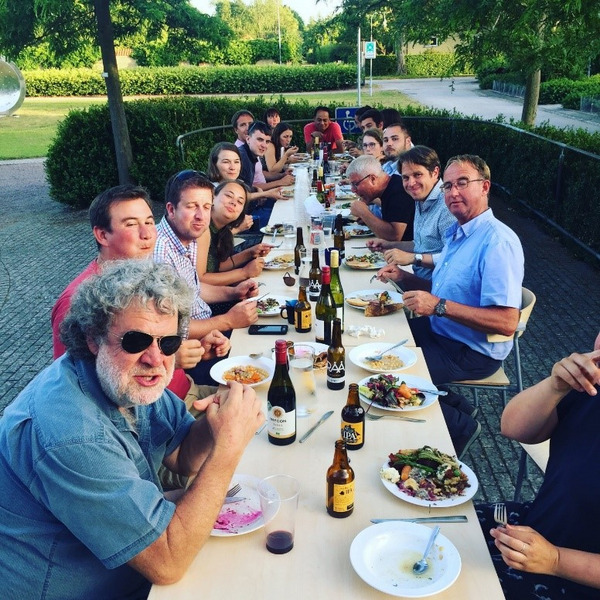The obvious answer: make trust-building and joint learning processes reinforce each other. But how to do so in learning processes about diversification and associated collaboration?
Following Guido Möllering (2006), trust refers to positive expectations that suspend the vulnerability and uncertainty associated with engaging with unfamiliar knowledge, partners and practices. So, one obvious option is visioning, i.e. creating new expectations together. The Swedish case study (case study 19: Local legumes – collaboration within the whole value chain) sought collaboration with the value chain to enable intercropping with legumes. Yet, the growing vegan market was initially not seen as an opportunity to valorise legumes but as a threat, that triggered concerns from farmers: how can ecologically-growing farmers do without animals? Why set them up against livestock farmers? And weren’t some vegan activists in Sweden treating farmers badly?
In a workshop, in Spring 2018, joint learning was targeted right at these points of vulnerability and uncertainty: re-imagining the vision of the Swedish food system with a more prominent role for legumes, and different meanings attributed to veganism. Inspired by a new participant (a cook), a subsequent workshop was organised in Fall 2018, which included a legume dinner, prepared by groups of two people with differing backgrounds. This helped build mutual trust and engage in joint learning, while also adding taste and culinary aspects to the vision and yielding recipes that combine legumes and meat.
The next workshop, held four months later at a participating organic chicken farm with a field of legumes, built on this to further elaborate how the vision of this network could include livestock as well as legumes. This further increased trust, and was followed by a visit to East Anglia, UK (case study 15: Growing pulses and innovative crops for a less resource-intensive diet) to exchange experiences with new legume varieties and lessons on sorting and storage.
A second example involves the design of collaboration with unfamiliar actors and implementing unfamiliar practices. In Northern Germany, a farmer advisor invited farmers to join a project (case study 3: Crop diversification to improve water quality stability). The project uses diversification to make farms more resilient in the face of drought and excess precipitation, as well as balance nitrate use to reduce water purification costs. Yet, initially farmers did not believe these benefits would occur, and were reluctant to go to meetings. Water managers were interested in the idea, but also reluctant to meet. Underlying this reluctance was a lack of experience with meeting each other and with opposing interests.
Again, the key was to address the core issue: lack of evidence about benefits. A breakthrough was established by actively drawing upon an external crisis, the summer drought of 2018, to change expectations about the impacts of climate change on farming, especially on yield stability. Trust building was then made part and parcel of gathering information on the felt vulnerability and uncertainty. It did so by re-focussing the project towards yield stability through diversification. This created an interest in participation; subsequent interactions helped to create further trust between the advisor and the farmers.
References
Mollering, G. (2006). Trust: Reason, routine, reflexivity. Emerald Group Publishing

 Souhaitez-vous ajouter le site web à l'écran d'accueil ?
Souhaitez-vous ajouter le site web à l'écran d'accueil ?
Disqus
Pour pouvoir utiliser la fonction de commentaire, vous devez vous inscrire auprès du fournisseur tiers "Disqus".
Lorsque vous activez cette fonction, votre navigateur établit une connexion directe avec les serveurs du fournisseur tiers. Nous attirons votre attention sur le fait qu’après l’activation, des données seront transmises au fournisseur tiers et que ce dernier pourra, le cas échéant, déposer des cookies, qui peuvent notamment être utilisés à des fins d’analyse et de marketing. Pour plus d’informations, veuillez vous reporter à notre déclaration de protection des données.
Activer